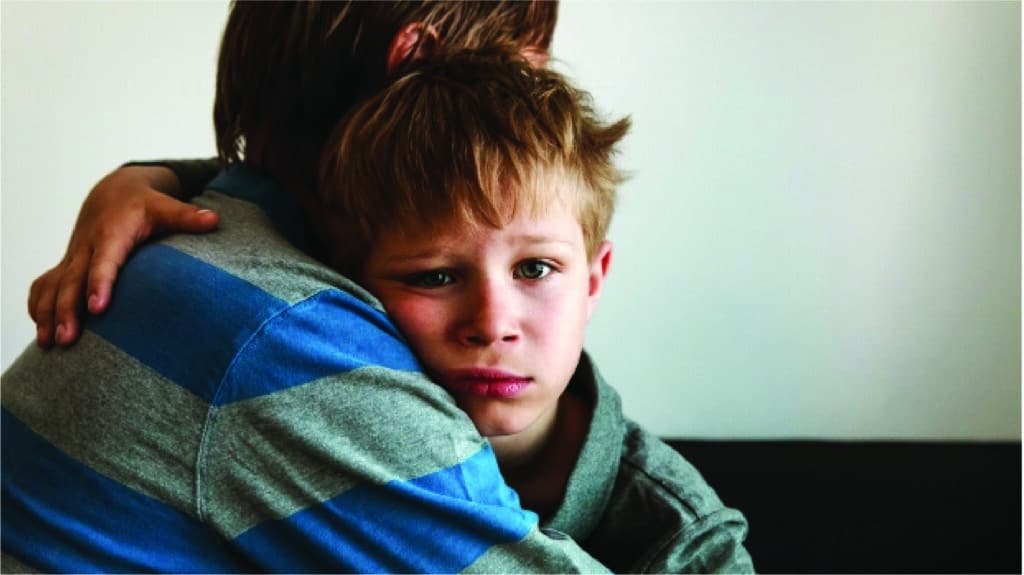
Anxiety in Children and the SPACE Program
By Sarah Schufreider, MSW, LCSW
Stress, anxiety, and worries are a common part of everyone’s life, including children’s lives. However, many parents find themselves wondering if their child’s worries or anxieties fall into the usual spectrum for worry or if there is something more going on. Anxiety can be described as the brain’s fire alarm that alerts us to potential dangers in our environment. However, for children with anxiety disorders, the brain’s fire alarm is too sensitive and gets triggered by situations that do not actually pose any real danger. Some common symptoms of childhood anxiety disorders include:
- Not sleeping well or having nightmares
- Being clingy or crying constantly
- Complaining of headaches, stomach aches, or other physical symptoms with no other medical explanation
- Finding it hard to concentrate
- Constantly feeling worried, stressed, or having lots of negative thoughts
- Easily getting angry or having trouble managing big feelings
If a child is experiencing an anxiety disorder, there are a number of treatments that are offered to help children and families cope. Interestingly, not every intervention requires the child to be present in order for it to produce successful outcomes. One unique approach that involves a child’s caregivers is called SPACE (Supportive Parenting for Anxious Childhood Emotions). The SPACE program acknowledges that parents and caregivers are NOT the problem in relation to their child’s anxiety; however, it allows parents to be an active part of the solution. Therefore, SPACE focuses on looking to change the parent’s or caregiver’s behavior rather than the child’s behaviors. The goal of the SPACE program is to decrease how a family accommodates a child’s anxiety while simultaneously increasing ways for parents to support their child through their struggles.
Decreasing Accommodations
Often, children will look to parents to help them handle and avoid anxiety. While it is natural for parents to want to shield their children from difficult feelings, anxiety tends to grow larger and larger when people ignore it. Therefore, the SPACE program works with parents to decrease the accommodations they are making to help their child avoid anxious feelings. Examples of accommodations might include:
- Sleeping in bed with a child who is afraid to sleep alone
- Not going out of the house at night or only having a specific babysitter
- Answering constant questions related to a child’s specific worry
SPACE trained clinicians work with parents to identify all the ways that they may be intentionally or unintentionally accommodating a child’s anxiety, and will work with them to create a structured plan to work towards slowly decreasing the accommodation so that the child will have more opportunities to work on directly facing their anxieties.
Increasing Parental Support
Increasing parental support is the other goal of the SPACE program. Oftentimes, parents find themselves falling into one of two opposite reactions to their child’s anxiety: being demanding or leaning on protection. Demanding refers to responses that encourage a child to “just do it” and can invalidate the child’s real feelings of fear. Protection responses validate the child’s fear but give the fearful feelings too much power by encouraging the child to do things to avoid those feelings. Both demanding and protective responses are missing a vital area of support for the child. In the SPACE program, the most successful parental support follows this recipe:
Validating Feelings + Increasing A Child’s Confidence to Handle Tough Emotions= SUPPORT
While the recipe may seem simple, it is often deceptively difficult to put into practice. Therapist work with parents and caregivers to help create realistic support for their children and recognize areas where they can augment support.
Overall, by supporting parents to both decrease accommodation and increase supportive statements, SPACE helps families navigate and better handle their child’s anxiety. SPACE is just one of a number of ways that therapists at AMK can work to support families whose child/ren are struggling with anxiety.
AMK has a number of clinicians who are trained in the SPACE program and are happy to work with families who are interested in exploring this options for treatment. Please contact our intake specialist via email at intakes@amkcounseling.com to schedule an appointment.
Resources:
Book: Breaking Free of Child Anxiety and OCD by Eli Lebowitz
Website: https://www.spacetreatment.net/
